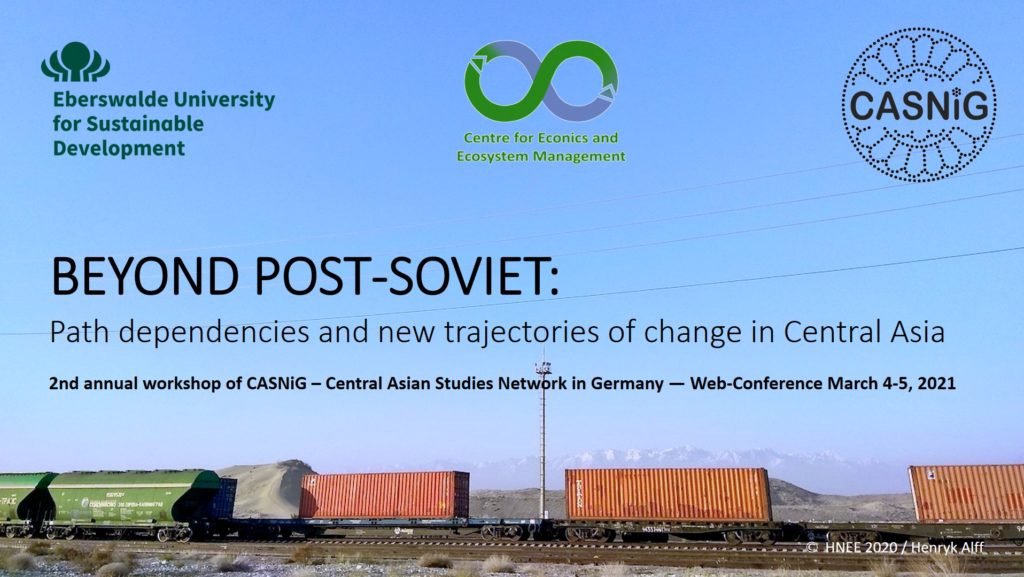The second annual CASNiG workshop entitled \”Beyond post-Soviet: Path dependencies and new trajectories of change in Central Asia\” was held as a web conference hosted by Eberswalde University for Sustainable Development.The event was organized by Martin Welp (Chair of Socioeconomics and Communication), Michael Spies and Henryk Alff (research group TRANSECT), and other colleagues.
In five topical sessions, ranging from discourses and memories in agriculture to conflict and cooperation in natural resource use and new urban transformations, junior and senior colleagues from a broad range of academic institutions in Germany and beyond presented and discussed ongoing research work.
About the workshop theme:
Almost three decades after the dissolution of the Soviet Union, legacies of the Soviet past are still a dominant research theme on Central Asia. By going beyond the post-Soviet category, the second CASNiG (Central Asian Studies Network in Germany) workshop aims to critically re-evaluate the role of path dependencies vis-à-vis new actors and processes in shaping current societal (including social-ecological) developments in the region. Among others, Central Asia has become subject to new geopolitical interests, encounters increasing global interdependencies of socioeconomic development, and is confronted with high vulnerabilities in the context of new long- and short-term crises such as climate change and global pandemics.

